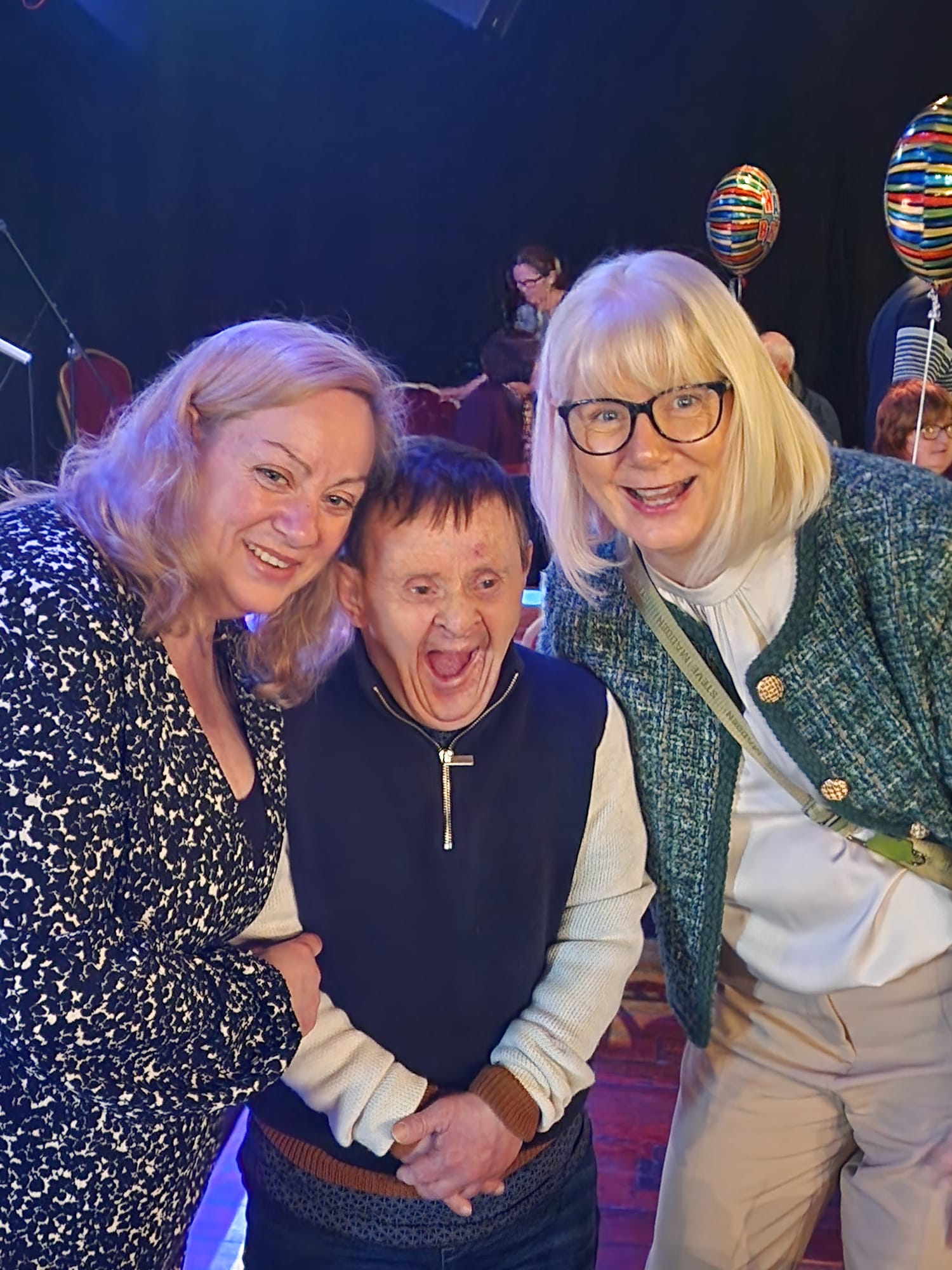April TCAID: InFocus - Bobby’s Birthday Bash, a Milestone to Celebrate
Happy 70th, Bobby your story is an inspiration to all!

In April, we celebrated an extraordinary milestone, Bobby Power, from the Brothers of Charity Services, a remarkable man with Down syndrome, turned 70 years old. His life is a testament to resilience, love, and the changing landscape of healthcare and support for people with Down syndrome. Surrounded by family, friends, and a community that cherishes him, Bobby’s birthday bash was more than just a personal celebration; it was a moment of significance in the broader discourse on ageing and intellectual disability.
Historically, people with Down syndrome had a significantly shorter life expectancy, often not living beyond their teenage years or early adulthood due to congenital heart defects, respiratory issues, and a range of other health complications. However, advances in medical care, early interventions, and better social inclusion have dramatically changed these outcomes. Today, many people with Down syndrome live well into their 50s and 60s, with some, like Bobby, reaching their 70s and beyond. This increase in life expectancy can be attributed to improved cardiac surgeries in infancy, enhanced access to quality healthcare, better understanding of nutritional and physical health needs, and social policies that emphasise inclusion and support. Despite these advances, ageing with Down syndrome presents unique challenges, particularly in relation to cognitive decline, dementia, and other age-related health conditions, which tend to manifest earlier compared to the general population.
Research has shown that adults with Down syndrome have a higher risk of developing Alzheimer’s disease at an earlier age1, with symptoms often appearing in their 40s or 50s. This is due to the presence of an extra copy of chromosome 21, which carries the amyloid precursor protein (APP) gene, linked to the development of Alzheimer’s pathology. Despite this, some individuals, like Bobby, defy expectations and continue to lead active and fulfilling lives well into their later years. A key factor in successful ageing among people with Down syndrome is the presence of strong social connections and structured support systems which was so evident at his celebration. Family involvement, engagement in meaningful activities, and access to person-centred healthcare contribute significantly to their quality of life. Additionally, emerging research is exploring interventions to delay cognitive decline, including lifestyle modifications, medication trials, and tailored cognitive therapies.

Bobby’s 70th birthday is not just a celebration of age but a celebration of progress, resilience, and the evolving understanding of what it means to age with an intellectual disability. His journey challenges outdated assumptions and highlights the importance of continued advocacy for inclusive healthcare and ageing support tailored to individuals with Down syndrome. As we honour Bobby’s incredible milestone, we also recognise the importance of continued research in this field. Understanding the factors that contribute to longevity in individuals with Down syndrome and those with intellectual disability can help improve care strategies and ultimately enhance the lives of future generations. The Intellectual Disability Supplement to the Irish Longitudinal Study on Ageing (IDS-TILDA) is an internationally recognised research project at the forefront of this effort providing critical insights into the health and wellbeing of older adults with intellectual disability including those with Down syndrome. IDS-TILDA has been critical in uncovering key factors influencing longevity from healthcare access and lifestyle to social supports and bone health. The contributions of all the participants, their families and service providers are invaluable in making this research possible. By sharing their experiences participants provide the evidence that informs policy, enhances healthcare approaches and ensures that supports are tailored to improve the quality of life for all people with intellectual disability as they age.

